
Easy Guide To Staying Healthy, Fit and Sane During COVID-19
Written by Robert Connolly
How are you doing? People cope with difficult situations in different ways. So, how are YOU feeling? I hope this finds you in a situation where someone has checked in on you recently or that you are able to follow up on the welfare of others. Today. Today. TODAY…is a good day to evaluate your health status, get back on track (if needed), and then plan to help at least one other person. Just in the past week, I’ve heard people say, “I’ll start working out again next week” or “I’m stressed out over all the news.” I imagine this could be a common theme while we wait for gyms to open back up and returning to our usual schedules. Since we do not know exactly when this will occur, it is time to take charge today and begin our new routines. Here is a simple guide shared by examine.com to help get you and loved ones back to functioning at an optimal, healthy level and feeling great again.
#1 LIFESTYLE CHANGES
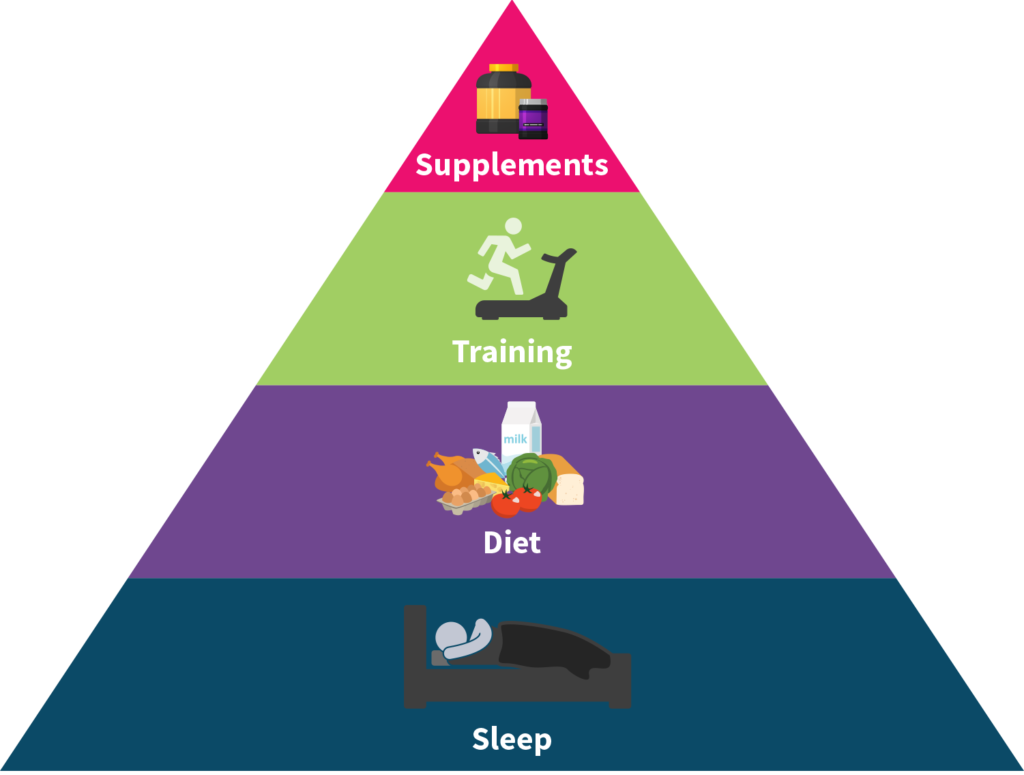
“You don’t achieve good immune health by taking buckets of supplements clumsily targeting inflammation or other signaling processes, but through a balanced diet, proper hydration, restful sleep, regular exercise, and stress-control. Your immune system must be strong enough to fight off invading microbes but should not react so strongly that it ends up damaging healthy cells.” states examine.com. This can be a daunting task so begin with the foundation by starting to get ample sleep tonight.


As you start to feel more rested you may naturally begin to feel more motivated to work out again. Find a 15-20 minute bodyweight-only exercise and ease back into your routine the first week. Do not forget to warm up and stretch.
Build-your-own a Bodyweight Workout
- Pick 1 move from each column (lower body, upper body, etc)
- Do each exercise for 1 minute, as many reps as possible
- Rest 20 seconds
- Repeat the cycle 3 times
- Finish with a 3-5 minute cool down and stretch
- Repeat the next day and mix-and-match the workouts. Progressively increase your sets or reps.
| LOWER BODY | UPPER BODY | LOWER BODY | CORE | CARDIO |
| Body Weight Squat | Push-Up | Forward Lunges (Alt. legs) | Scissor Kicks | High Knees |
| Sumo Squat (widen stance) | Triceps Dip | Reverse Lunges (Alt. legs) | Reverse Crunches | Side to Side Shuffle |
| Squat jump or Squat Calf Raise | Plank Shoulder Tap | Curtsy Lunges (Alt. legs) | Bicycle Crunches | Jumping Jack’s |
| Glute Bridge | Plank Walk | Lateral Lunges (Alt. legs) | Toe Tap Crunches | Quick Feet |
If you have access to Battle Ropes, try out this fun workout.
Training Intensity vs Risk of Infection
The chart below shows how to minimize your risk of infection based on your activity levels.
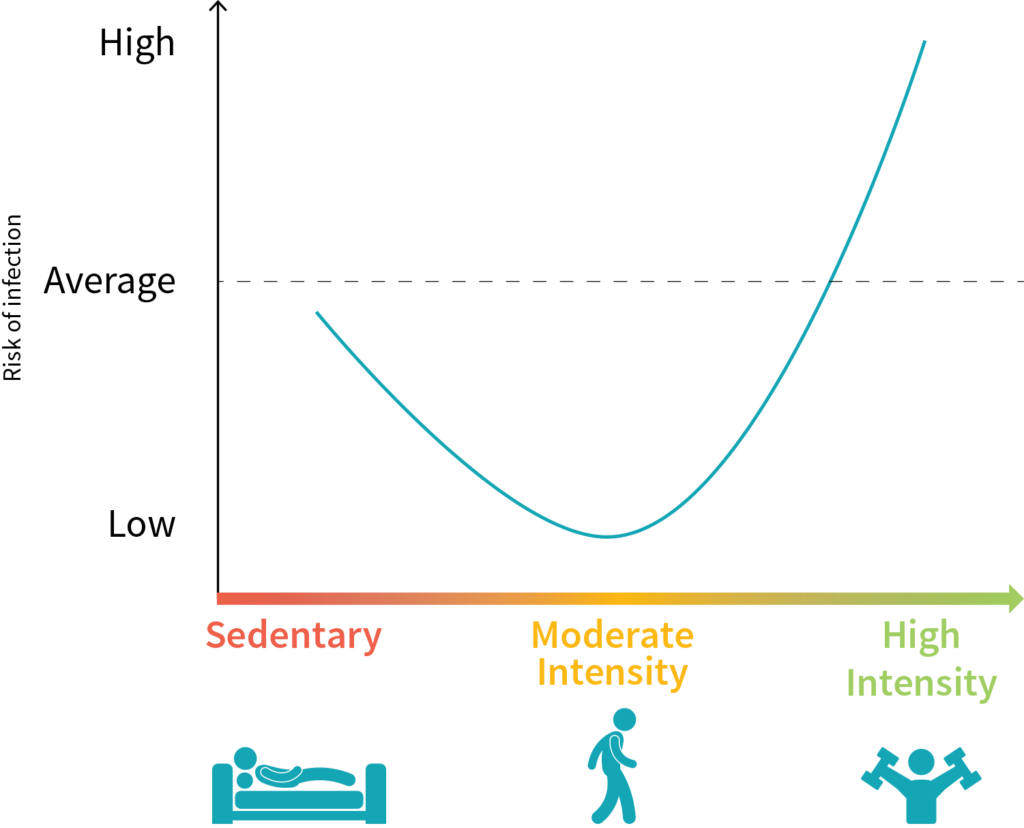
#2 DEALING WITH INFORMATION OVERLOAD
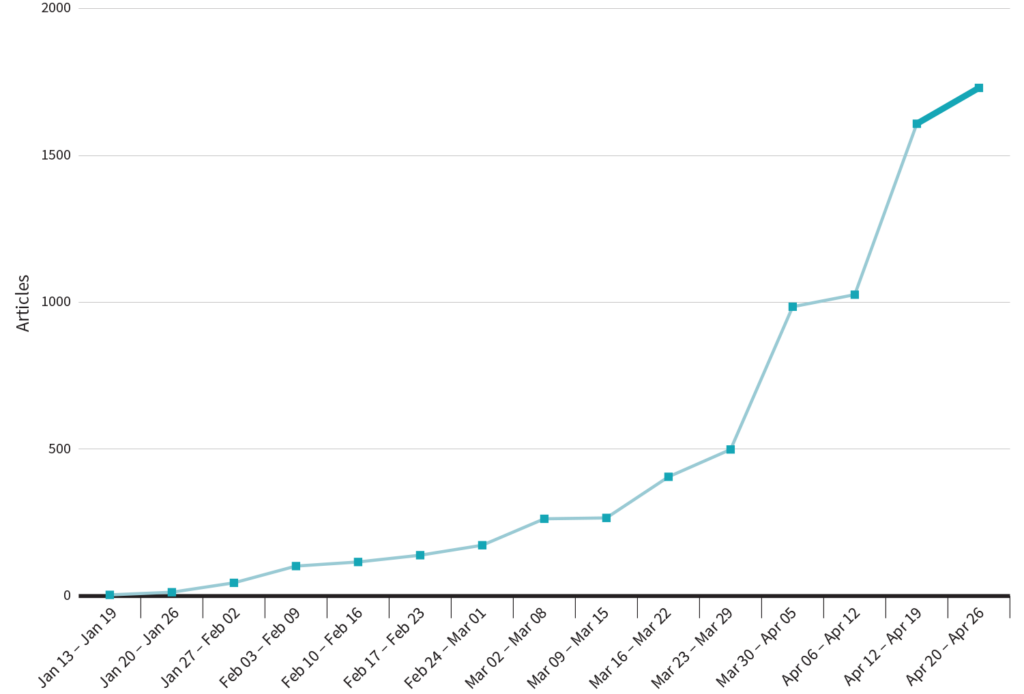
The amount of new research being published is immense and nearly impossible to sift through on ones own. There are trustworthy sources available that you can turn to first. Here is a short-list provided by examine.com.
Websites and Articles
- A good Q&A article.
- An introductory article and a more in-depth article exploring the epidemiology, virology, clinical features, diagnosis, and prevention of COVID-19..
- A brief Q&A article, an introductory article, and a more in-depth article on COVID-19 during pregnancy, delivery, and after childbirth.
- An introductory article and a more in-depth article on COVID-19 and children.
- An in-depth article on COVID-19 and people with kidney disease or high blood pressure.
- An in-depth article on COVID-19 and cancer care.
- An in-depth article on the management of patients who are critically ill due to COVID-19.
- Johns Hopkins University and the World Health Organization (WHO) provide daily reports on coronavirus research, disease spread, and government responses. Johns Hopkins also collates links to articles from various news media.
Videos
- Public Health On Call is a video playlist from the Johns Hopkins Bloomberg School of Public Health that provides a daily series on issues related to COVID-19.
- STAT provides very brief explainer videos (under 2 minutes each) on a semi-regular basis.
- Vox has a series of longer explainer videos released semi-regularly.
- Healthcare Triage, hosted by Dr. Aaron E. Carroll, MD, MS, posts semi-regular explainer and Q&A videos.
- MedCram offers near-daily video updates from Dr. Roger Seheult, MD, with highly detailed science and reports on recent studies.
- Osmosis hosts daily reports by Dr. Rishi Desai, MD, MPH. It also has a playlist with detailed medical information related to COVID-19.
Podcasts
- Public Health On Call is the audio-only version of the aforementioned video playlist from the Johns Hopkins Bloomberg School of Public Health.
- Raise the Line is hosted by Dr. Rishi Desai, MD, MPH, and Shiv Gaglani, MBA, of Osmosis. It explores ways to increase healthcare capacity during COVID-19.
- Sawbones is hosted by Dr. Sydnee McElroy, MD, FMC, and her comedian husband Justin. Recently, it has been diving into current COVID-19 developments. It provides some historical medical context.
- Science Vs is hosted by journalist Wendy Zukerman, who holds degrees in both law and biomedical science. Recently, it has been interviewing multiple experts on COVID-19 topics.
- Social Distance is hosted by Dr. James Hamblin, MD, MPH. He talks to friends and colleagues and answers their concerns and questions about the pandemic.
Additional Resources
- If you’re looking for more resources, we compiled some on this page.
#3 MENTAL HEALTH
You can also use the resources provided by the National Institute of Mental Health and the BeThe1To campaign.
For People Who Just Need To Talk
For People Who Have Suicidal Thoughts
For People Dealing With Substance Abuse
For People Dealing With Sexual Abuse or Assault
For People Dealing With Domestic Violence
For Members of the LGBT+ or Queer Community
For Members of the Military
For Teenagers
“You might wake up each morning with a mild sense of panic. What happened to the world in the past few hours? What new COVID-19 evidence has come out?! Have we found a cure yet?!? Has a date been announced for the end of the lockdown?!?!”
“Do not read about the coronavirus 24/7! That’s not a good strategy for physical or mental health.”
“Put yourself on a Coronavirus Information Diet (CID™). Select the resources and websites you want to check regularly and decide in advance how many times you can read them in a day and how long you can spend reading them each time. Then stop. Even if you’re in the middle of an article, stop.”
Looking for a good distraction?
GO TO A MUSEUM
- Google’s Arts and Culture website offers a variety of virtual museum tours.
- The National Palace Museum of Taipei offers an extensive virtual tour.
- The Louvre has a small collection of virtual tours of its exhibits.
EXPLORE A PARK
- NYC has a parks@home initiative that includes park tours, meditation, art classes, fitness activities, and activities for kids.
- You can also “visit” some US national parks via the National Park Foundation and via Google Earth.
Google has an excellent semi-interactive guided series available. Start the full tour here, or jump right into the following exotic locations:
- The Bryce Canyon in Utah
- The Carlsbad Caverns in New Mexico
- The Dry Tortugas in Florida
- The Kenai Fjords in Alaska
- The Kīlauea Volcano in Hawai’i
TOUR THE WORLD
- Go for an underwater, interactive tour of the Great Barrier Reef in Australia, or have a swim with sea turtles.
- Experience the culture and scenery of Greece.
- Head over to Perú for a narrated tour of the famous Incan citadel, Machu Picchu.
- Explore cities from all around the world with these 4K videos.
- Enjoy an Alaskan view of the aurora borealis.
- Take a tour of some of the most beautiful places on Earth from the ground for 3 hours or from the air for 7 hours.
HEAD OUT INTO SPACE
- Slowly orbit the globe with time-lapse photography from the International Space Station (ISS). (You can also watch live video from the ISS.)
- Earth from orbit is beautiful, but does the silence of the void creep you out? You can enjoy a space concert with Vivaldi’s The Four Seasons as you drift around our home world.
- Ah, but you may be a little sick of Earth right now. If so, why not go spend ten minutes on Mars?
- Looking for something more interactive? Then take a walk around Mars while learning what the NASA rover Curiosity discovered on our red neighbor.
- Mars too suburban to your liking? Want a vacation away from our solar system? NASA has got you covered with an interactive tour of exoplanets.
- You could even let the Hubble Space Telescope launch you into deep space or discover what it has photographed on your birthday.
Expand your mind
Online classes are in no short supply. Some can be completed in a day, whereas others can take you a few weeks. Whatever your interests, you’ll be sure to find something to keep your mind busy at the sites below.
- Class Central
- Coursera
- Crash Course
- EdX
- Harvard Online Courses
- Hogwarts School of Witchcraft and Wizardry
- Khan Academy
- Open Yale Courses
- OpenWHO
- Osmosis
- Skillshare
- Udemy
Need something to keep the kids engaged? The James Dyson Foundation has a few dozen hands-on science and engineering experiments you can try at home.
Looking for some relevant and timely courses? Check out these options:
MENTAL HEALTH
- Learn about emotions, stress, and health on Crash Course.
- Learn about physical distancing and its implications for mental health on SciShow Psych
- Learn about the science of well-being with Dr. Laurie Santos, PhD, from Yale University.
- Learn about managing your mental health during COVID-19 with Dr. Steve Joordens, PhD, from the University of Toronto.
IMMUNOLOGY
- Crash Course has a three-part series (30 minutes total) on the immune system.
- For a deeper dive into immune function, try these lessons from the Khan Academy.
- Class Central has a list of courses dealing with infections and vaccination.
EPIDEMICS AND INFECTIOUS DISEASES
- SciShow has a playlist of videos to help you understand epidemics and other diseases.
- The Khan Academy has lessons on infectious diseases such as influenza.
- Class Central has a list of courses that cover the science of epidemics.
- On Coursera, the Johns Hopkins University offers a teach-out on fighting COVID-19 with epidemiology. (All videos but one are about using data science to fight epidemics in general, and seem to predate COVID-19. The knowledge is applicable to the current pandemic, though.)
COVID-19
- Class Central maintains a list of (currently 20) coronavirus-related courses. This list indicates how many hours each course takes to complete.
- COVID-19: What You Need to Know is a 3-hour CME-eligible course provided by Osmosis and Coursera.
- The CDC has a series of webinars for healthcare professionals.
- The National Academy of Medicine and the American Public Health Association offer a lecture on the science of physical distancing (part 1, part 2).
Read (or listen to) free books
Looking for a good read (or a good listen)? These sites offer access to thousands of free books and audiobooks:
Commercial platforms also have free stuff:
- Apple has released a special collection of free books and audiobooks. It can be accessed through their Apple Books app.
- For Android, free content can be found through the Google Play bookstore.
- Audible has temporarily provided free access to hundreds of audiobooks for kids and adults alike.
Looking for free textbooks? (And, I mean, who isn’t?) Get your fill on these platforms:
Springer Nature also makes hundreds of textbooks free during the coronavirus lockdown.
#4 SANITATION PRACTICES
You’ve heard this many times, so straight to the point:
- Wash your hands for at least 20 seconds with warm water and soap frequently throuout the day
- Avoid touching your face and wear a face mask in public when possible (certain cities do not require a face mask while working out, eating, have underlying health issues, etc)
- Practice social distancing
- Call a doctor if you think you are infected
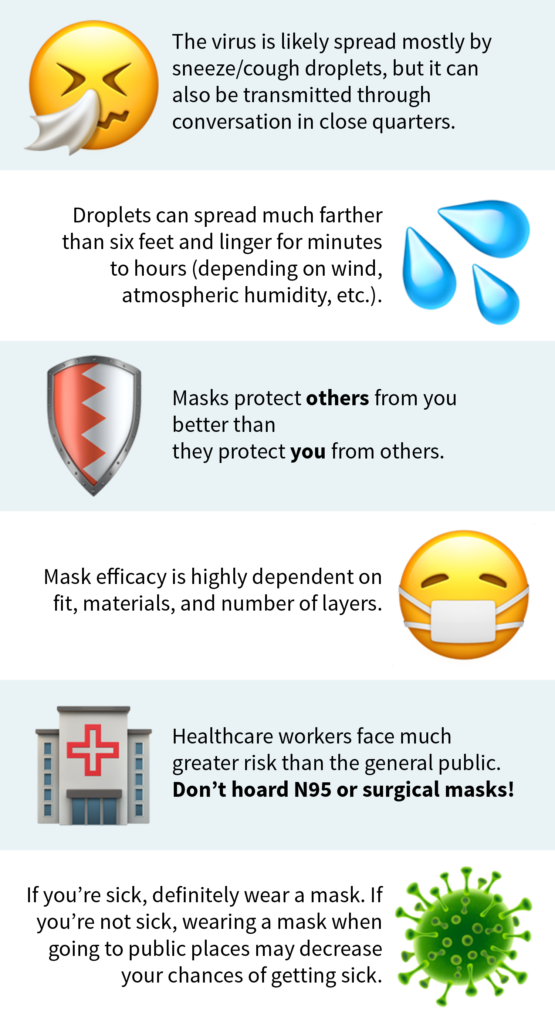
- Source: www.examine.com

Top 5 Nutrition Myths
You May Also Like
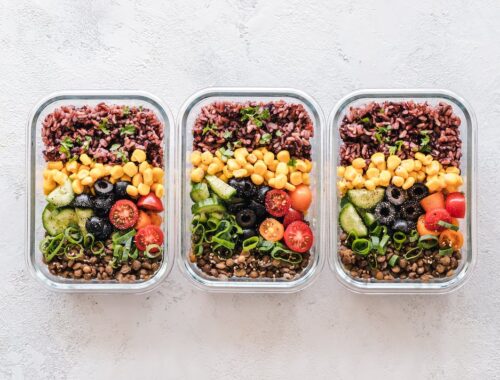
Are Meal Deliveries Here to Stay?
October 13, 2017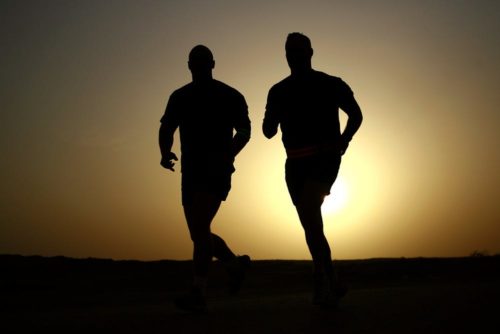
Exercise…A way of life
August 17, 2019
